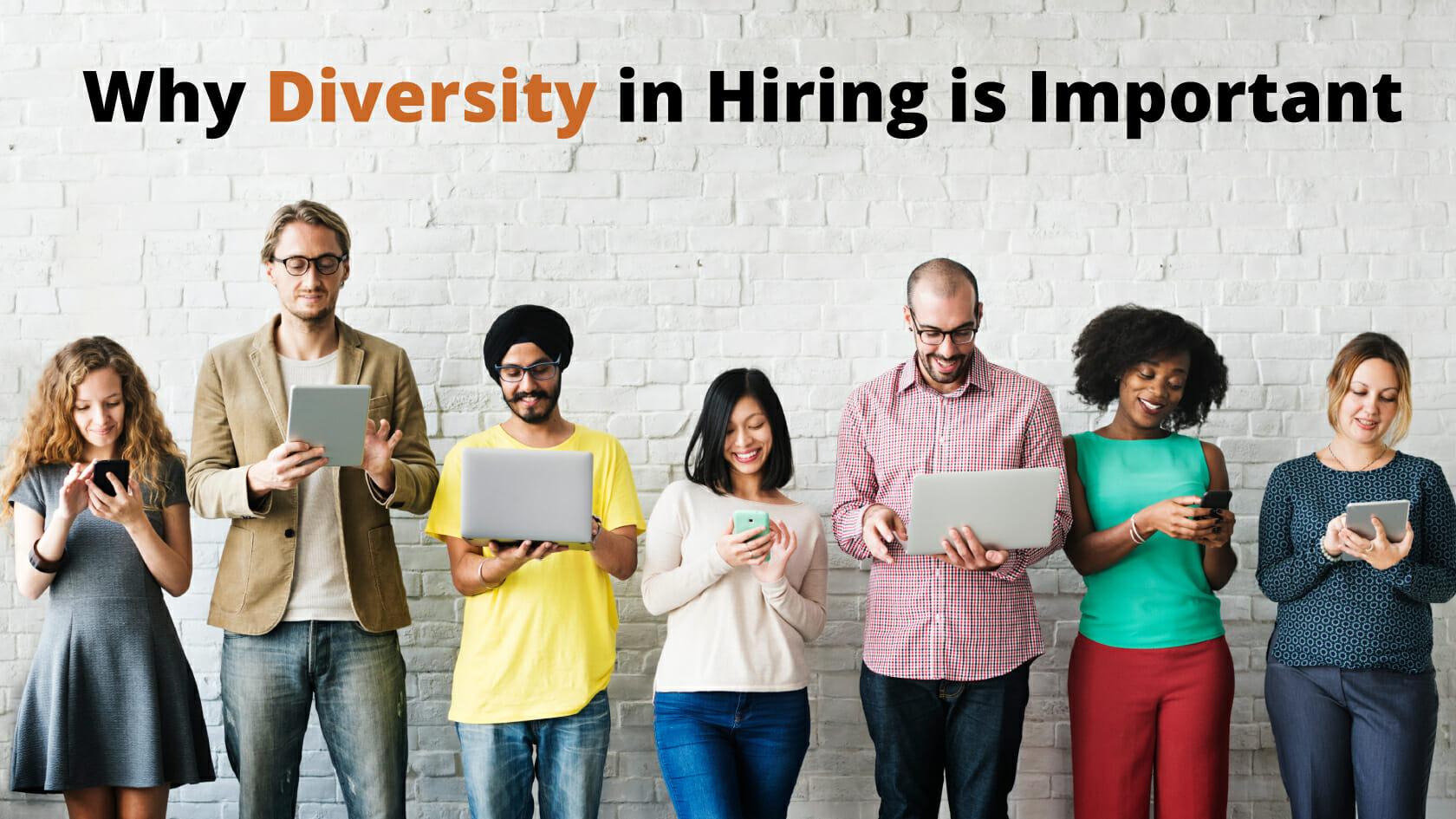Hiring for Diversity in a Digital World: Why Is It Important


Diversity matters for many reasons and savvy employers know this. They recognize the value that diversity brings in terms of employee innovation and insights. And they know that today’s employees themselves value diversity and favor companies that reflect the diversity of the world we live in. Unfortunately, despite their commitment to building a diverse workforce many employers struggle to find and retain diverse staff members. Here we take a look at why diversity in hiring is important, you can see the others parts why companies are challenged to build a diverse workforce and best practices for attracting and retaining diverse workers.
Why Diversity in Hiring is Important
In a tough hiring environment employers are more challenged than ever to not only find qualified staff members but to find staff members who represent the diversity of their communities and markets.
Diversity Matters: Data on the Importance of Diversity in Hiring
There is ample research to support the value that having a diverse workforce can bring to any organization. Research from Catalyst, for instance, supports the positive impact that diversity can bring to an organization in four areas: talent, innovation and group performance, reputation and responsibility, and financial performance. Specifically, they say that:
- Companies with higher levels of gender diversity are linked to lower levels of turnover.
- Inclusive environments are especially important for employees of color.
- Inclusive environments are more likely to increase job satisfaction and commitment.
- Diverse teams are critical for innovation, leading to increased creativity and better decision-making.
Their research is supported by similar research reported by Harvard Business Review. A study of 1800 business professionals, looking at two types of diversity—inherent (the traits people are born with such as gender, ethnicity, and sexual orientation) and acquired (the traits gained through experience like working in another country)—lead to significant business benefits.
The researchers referred to organizations with both types of diversity as having two-dimensional, or 2-D, diversity. They say: “By correlating diversity in leadership with market outcomes as reported by respondents, we learned that companies with 2-D diversity out-innovate and out-perform others. Employees at these companies are 45% likelier to report that their firm’s market share grew over the previous year and 70% likelier to report that the firm captured a new market.”
Some organizations may balk at making a concerted effort to drive greater diversity in their workforces simply as something they should do from a societal standpoint without an understanding of how doing so can positively impact their business success.
…and The Positive Impact on the Bottom Line
Employers need to understand why they should want to prioritize diversity hiring and promotion, not just why they need to. The reason why is this: they will make more money. Employers will make more money by prioritizing diversity hiring and promotion because:
- Clients are increasingly requiring presentation of a diverse team to win business.
- A team with diverse viewpoints and background experiences allows for understanding and solving client needs with a full highway of ideas, not just one lane of ideas.
- New talent will be attracted to a diverse workplace and new talent will win new business.
- New markets and targets will be opened because diverse talent has connections with new and different networks and business communities.
It’s widely reported that many corporate boards around the country are populated by a preponderance of white males. Yet many of these companies may be attempting—often unsuccessfully—to break into emerging diverse populations of consumers who are increasingly non-white.
Without insights into the experiences, needs and values of these audiences, companies will fail to develop and deliver products and services, and market them in ways that connect with these audiences.
Diversity Matters to Employees—and Potential Employees
Diversity also, increasingly, matters to employees—and not just those who have diverse backgrounds themselves. Rising concerns over racial inequities and resulting social unrest have made issues of diversity, equity, and inclusion top-of-mind for many. Employees indicate that diversity matters to them, too, and that whether or not a company is diverse—and inclusive—can impact their decision to join, or stay with, an organization.
For instance, according to Insider: “In the U.S., 73% identified DE&I as ‘extremely’ or ‘very’ important to employment decisions.” Across the market areas they surveyed—the U.S., U.K., and China—they say: “In every market, a double-digit gap exists between the percentage of employees who view DE&I as important and those who believe their employer performs strongly in the area.”
Tapping Into Top Talent
Placing a more concerted effort on hiring from diverse talent pools can pay big dividends to companies struggling to attract and retain the type of talent they need. There may be entire populations of talent that are being overlooked simply because organizations aren’t thinking both broadly and narrowly about their target employee populations:
- Broadly from the standpoint of looking beyond approaches that may have marginalized certain groups (like requiring college degrees for all positions even when not shown to be correlated with success in those positions.
- Narrowly from the standpoint of identifying specific key target audiences and reaching out to them in meaningful ways.
Elizabeth Green is an occupational therapist and the owner of Link OT, LLC, a firm that supports neuro-distinct individuals seeking or sustaining employment or other life goals. Her firm partners with employers to help improve neuro-inclusive recruitment, hiring, onboarding, integration, and retention/career development practices. She points to companies like Microsoft and HP that have autism hiring programs because they have observed the tremendous value these individuals have to offer. “The disconnect between matching talent to opportunities is why I founded my business and speaks to the failure of typical recruitment and hiring processes,” she says.
Tapping into top talent can be enhanced by considering audiences that may not previously have been considered—or specifically targeted. Savvy companies understand this.
But even companies that understand and strongly believe that growing the diversity of their workforce will lead to solid and substantiated business benefits may be challenged to act on those beliefs in a way that drives success in terms of attracting, hiring, and retaining diverse candidates.
